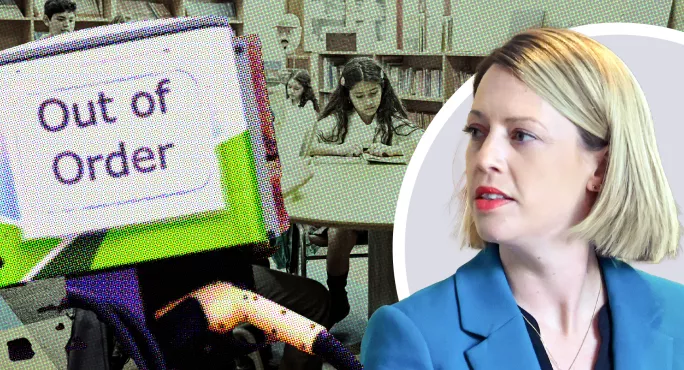Rebuilding trust among teachers is “absolutely essential” after years of national bodies being too “distant” from school staff and pupils, education secretary Jenny Gilruth said today as MSPs prepared to guide reforms over their first major hurdle.
She also revealed that the Centre of Teaching Excellence - a surprise element of reform when announced in 2023 - would be based at the University of Glasgow, in a statement before a debate and vote on the general principles of the Education (Scotland) Bill.
“The status quo is not working,” said Ms Gilruth, adding: “For too long, our national bodies have been too distant from those that they serve, too often.”
Lack of pace and boldness
The reform process - due to result in revamped national qualifications and inspection bodies - was initially catalysed by Covid-19, but more recently has been frequently criticised for a lack of pace and boldness.
“Rebuilding the trust of teachers will be absolutely essential” for the new organisations that emerge, said Ms Gilruth.
This afternoon’s debate, bringing to an end the first stage of the bill, largely went over concerns that have already been highlighted frequently, particularly that reform of the Scottish Qualifications Authority (SQA) will not go far enough and that the newly independent inspectorate will be too weak.
Ms Gilruth talked up the importance of getting teachers and school leaders more involved in the work of national education bodies. In particular, she highlighted a new post for a seconded secondary headteacher; this will be advertised in the new year and she would “strongly encourage” heads from across Scotland to apply.
Scottish Liberal Democrat education spokesperson Willie Rennie depicted an education system “in a crisis” - citing Scotland’s place in international league tables, as well as concerns over behaviour in schools and post-Covid pupil absence rates.
National education bodies ‘absent from big issues’
The inspectorate in its current form as a part of Education Scotland, said Mr Rennie, had “played no role in blowing the whistle on any of that” and was “absent...from all these big issues”.
He added that if national bodies such as Education Scotland and the SQA “are weak, then education is weak”.
As an example, he cited the storm over the marking of Higher history in 2024, an issue that the SQA has again been trying to resolve this week. Yet, Mr Rennie said that those attempts were undermined by the recent review into concerns about Higher history, as it had been carried out by the SQA chief examiner and was therefore widely criticised for not being independent enough.
Green MSP Ross Greer criticised the “slopy shoulders” of education governance in Scotland, explaining that this was typified by officials of national education bodies who, when put under scrutiny, attempt to shift responsibility elsewhere.
On the announcement about the base for the Centre of Teaching Excellence, Ms Gilruth said it was appropriate for Glasgow to be chosen as earlier this month it had been announced as a Unesco ”learning city”.
For the latest in Scottish education delivered directly to your inbox, sign up for Tes’ The Week in Scotland newsletter




